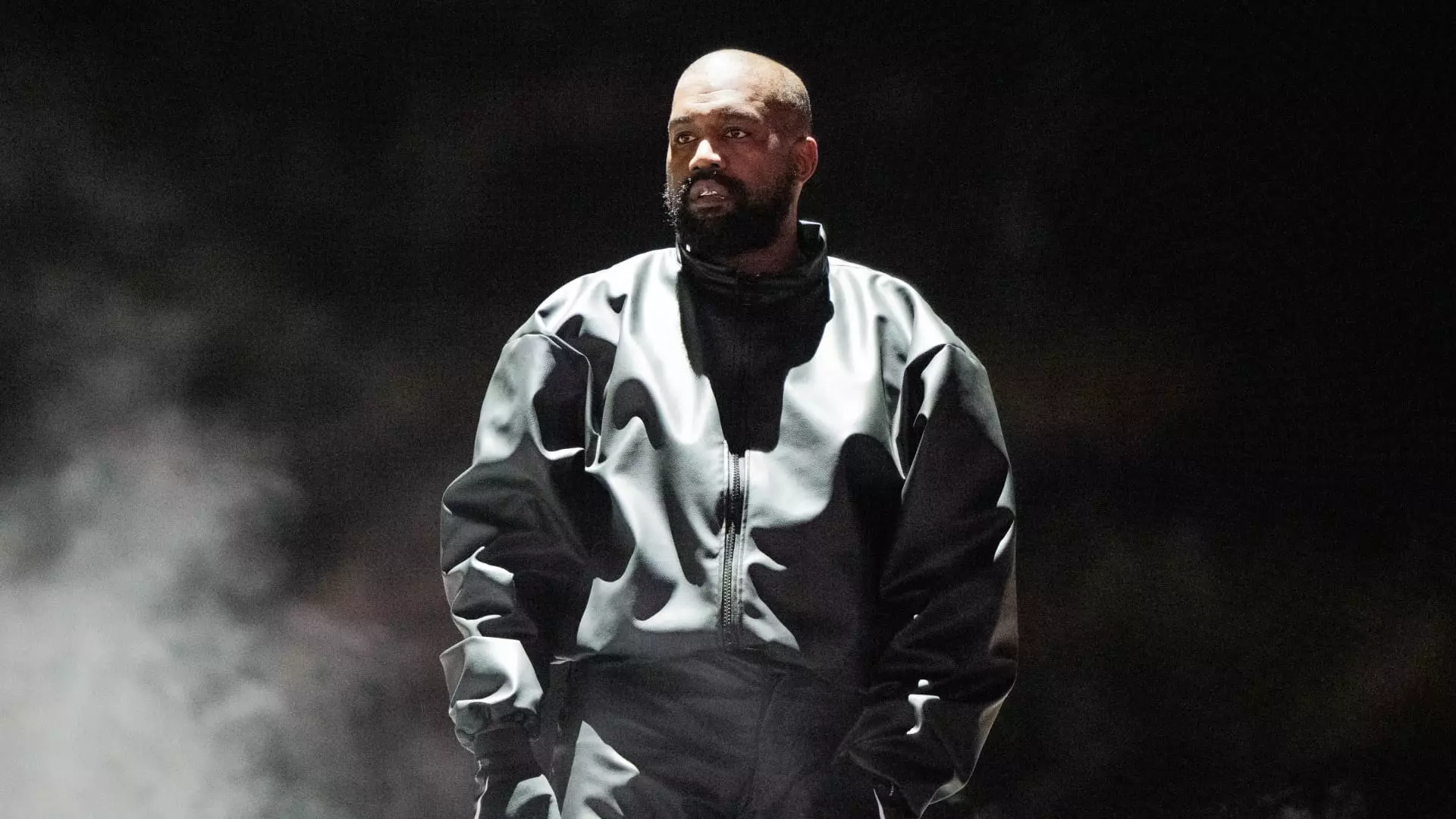As the world grapples with shifting cultural paradigms and complex geopolitical relationships, the imminent visit of Ye (formerly known as Kanye West) to China for a “listening party” for his new studio album, “Vultures,” signals more than just a musical event; it invites scrutiny into the intertwining realms of art, politics, and commerce within one of the world’s most controlled yet booming economies. Scheduled for September 15 on the island of Hainan, Ye’s return comes 16 years after his last performance in China and highlights the ongoing transformation of cultural venues in the communist state.
The Enigmatic Nature of Ye’s Presence
Ye’s music, often layered with controversial and provocative themes, has made him a polarizing figure worldwide. His history of public outbursts and opinions that sometimes skirt social norms raises questions about his compatibility with the conservative values of the Communist Party. “By China’s conservative social values, Ye is an outright misfit,” remarked one Weibo user. Such sentiments indicate a disconnection between a global artist’s ethos and the expectations of a nation that often prioritizes social harmony and controlled narratives.
The party’s decision to permit Ye’s presence on Hainan is indeed puzzling. Is it merely a strategic ploy to attract international tourists, or does it reflect a deeper, more nuanced engagement with global culture? As local government officials grapple with stagnating domestic tourism, efforts to reinvigorate public interest by inviting high-profile international artists like Ye could be seen as a desperate grasp for financial salvation. Hainan, often dubbed the “Hawaii of China,” aims to elevate its status on the international stage—a strategy linked to national tourism goals.
The Tourism Dilemma in Hainan
Indeed, the tourism economy of Hainan is undergoing a challenging transformation. Last year, the province’s tourism generated an impressive 181 billion yuan (approximately $25.5 billion), contributing to around 24% of its GDP. Yet, 2024 statistics reveal that the travel behavior of consumers is evolving, with a decline in both domestic demand and a minimal influx of international visitors, comprising a mere 0.87% of Hainan’s total tourists in the first seven months.
Moreover, reports indicate a worrying trend in shopping; duty-free sales leaped 30% in the early months of 2023 but took an unexpected downturn in 2024. This could potentially threaten Hainan’s ambitious tourism revenue target of 207 billion yuan for the year—a goal posed by local officials that seems increasingly far-fetched amidst declining consumer confidence both domestically and abroad. Charlie Chen, an analyst at China Renaissance, noted the sobering reality: “A drop in shopper and average spending suggests that even affluent customers are controlling their spending.”
The decision to include Ye in Hainan’s initiatives can be viewed as a highly strategic gamble. The local government is fully aware that state policies aimed at entertainment can catalyze interest and draw in crowds. Previous official announcements have indicated financial incentives aimed at attracting “world-class music events.” The hope is that by hosting such events, Hainan can position itself as a premier destination for international entertainment, aligning with the central government’s ambition to boost its economic engine through tourism and cultural exchange.
Nevertheless, this move comes with stakes. Criticisms on local forums reveal a certain unease amongst the citizenry regarding Ye’s past controversies, suggesting a potential backlash against the government for providing a platform to someone who has previously made inflammatory statements. The reactions from the public may vary based on political undercurrents and can affect the government’s perceptions of international figures, as public sentiment can sway in the unpredictable winds of cultural developments and international incidents.
As Ye prepares his return to Chinese soil, the event is unlikely to be merely a concert; it’s a litmus test for the local government and its ability to reconcile modernity with traditional values. While there is a portion of the population that is deeply uninterested or even hostile to foreign influence, the burgeoning class of young, affluent Chinese citizens is eager for global engagement, signaling a potential cultural clash that could either lead to a renaissance or a missed opportunity.
With the longstanding presence of anti-Israel sentiment in the media and Ye’s controversial opinions on the subject, it seems the political landscape in China may allow for a different reception than in the West. One fan, reflecting on this complexity, observed, “Their bottom line is Tibet,” indicating that the historical and political relationships between various global figures and their responses to China’s internal politics will play a significant role in the reception of artists.
As Hainan attempts to force its brand into international tourism, Ye’s performance stands as a pivotal moment not only for the artist but also for the trajectory of cultural globalization in a nation striving to balance its heritage with modern change. The forthcoming events will likely offer valuable insights into how art and culture navigate the intricate web of political and economic landscapes.

